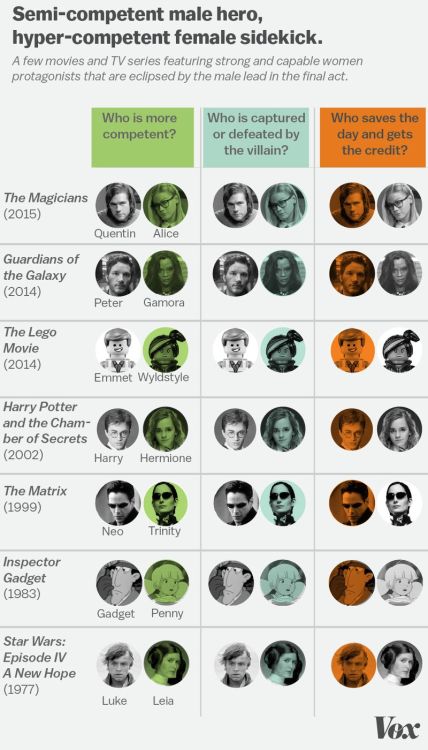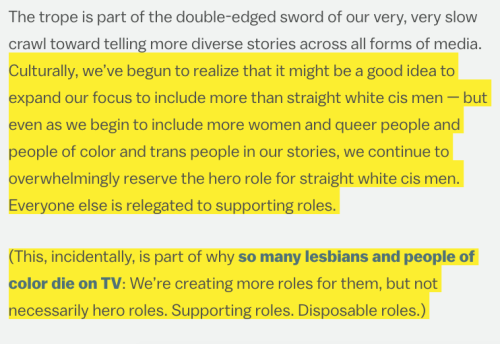characterlikeme:thepoliticalnotebook:@vox takes on the trope of the hypercompetent female sideki
characterlikeme: thepoliticalnotebook: @vox takes on the trope of the hypercompetent female sidekick. You know her – the one who’s the smartest, toughest and most capable yet ends up being rescued by the less talented, but extremely straight, white, cisgender and male hero. This intersects well with discussions about the pay gap and obstacles women face in their careers. For those of us who aren’t straight white cisgender men – the persistence of being typecast as not-the-hero (or the boss, or the leader, or the expert commenter) despite qualifications, talents and capabilities is a lived reality. Article is here: http://www.vox.com/2016/4/18/11433378/heroes-female-sidekicksImages: Table stating which character is most competent, who gets captured, and who saves the day. Examples included are: Quentin and Alice from The Magicians (2015 tv adaptation), Peter/Star Lord and Gamora from Guardians of the Galaxy (2014), Emmet and WyldStyle from The Lego Movie (2014), Harry and Hermione from Harry Potter and the Chamber of Secrets(2002), Neo and Trinity from The Matrix (1999), The Inspector and Penny from Inspector Gadget (1983), Luke and Leia from Star Wars Episode IV: A New Hope. In every example, the male character saves the day, while the female character is more competent and gets captured. The text in the image beneath the table is an excerpt from the article that reads: The trope is part of the double-edged sword of our very, very slow crawl toward telling more diverse stories across all forms of media. Culturally, we’ve begun to realize that it might be a good idea to expand our focus to include more than straight white cis men — but even as we begin to include more women and queer people and people of color and trans people in our stories, we continue to overwhelmingly reserve the hero role for straight white cis men. Everyone else is relegated to supporting roles. (This, incidentally, is part of why so many lesbians and people of color die on TV: We’re creating more roles for them, but not necessarily hero roles. Supporting roles. Disposable roles.) -- source link
Tumblr Blog : thepoliticalnoteboo1deac.tumblr.com

